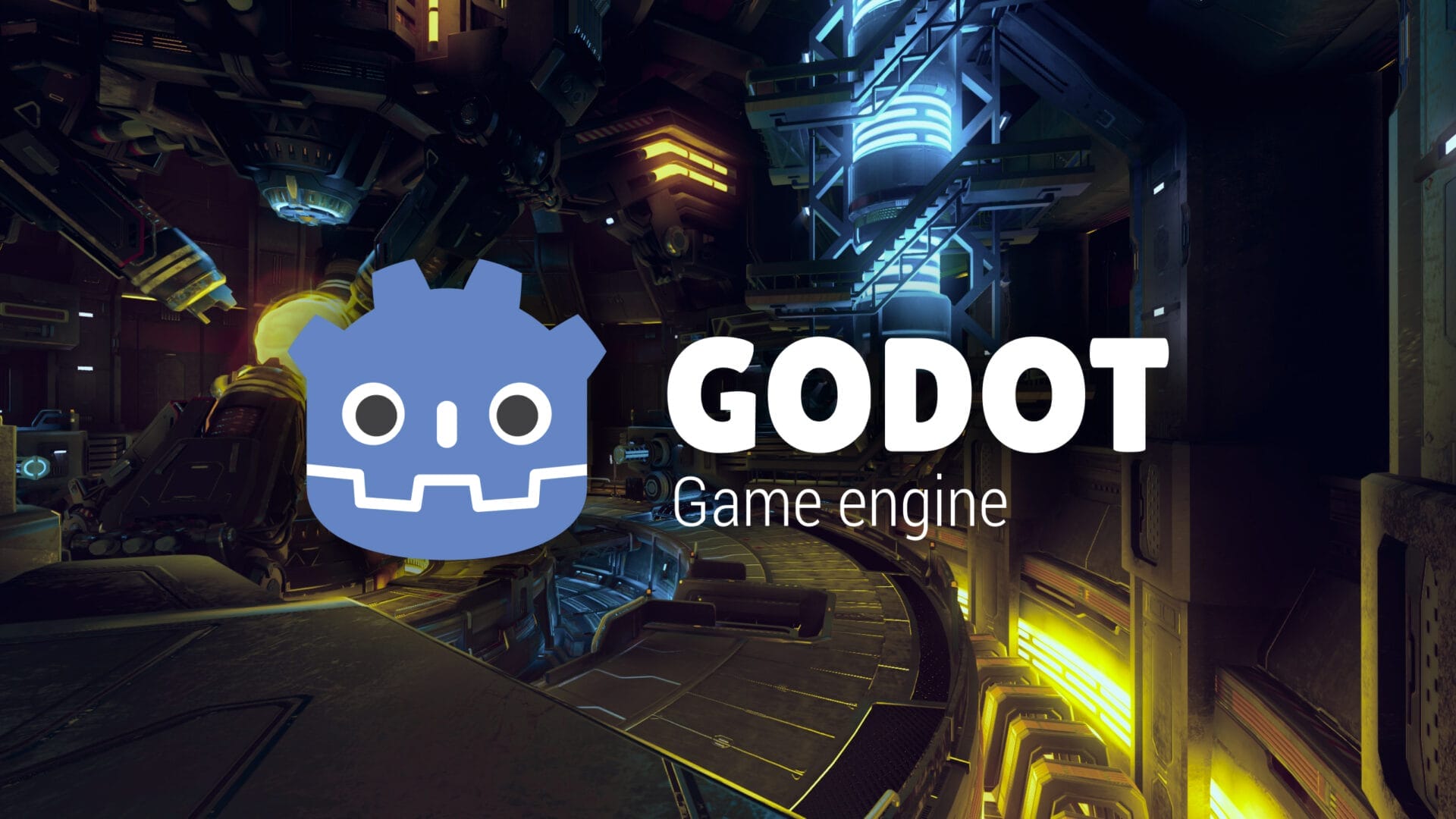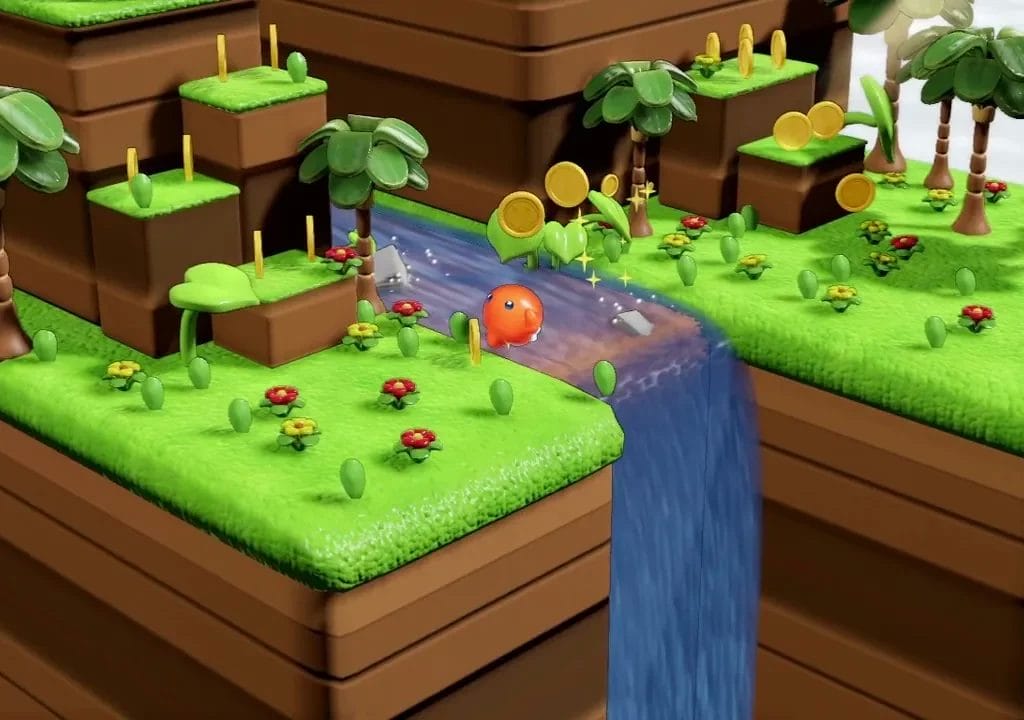Introduction Why Choose the Godot Engine for Game Development? ✨
Game engines are essential tools for creating video games. They provide a framework for building games, including tools for graphics, physics, sound, and more. With so many options available, it can be tough to decide which engine to use. In this post, we’ll explore the Godot engine and why it might be the right choice for your next game project.
Key Takeaways 🔑 Why Choose the Godot Engine for Game Development?
Here are some key takeaways to consider when choosing Godot for your game development projects:
- Free and Open-Source: Godot is completely free to use, even for commercial projects, and its open-source nature fosters transparency and community collaboration.
- Lightweight and User-Friendly: With a small file size, no account requirements, and an intuitive node-based architecture, Godot is easy to set up and use.
- Comprehensive Documentation and Community Support: Godot boasts excellent documentation and an active, welcoming community ready to help developers of all skill levels.
- Flexible and Customizable: Godot’s architecture allows for flexibility in project structure and customization of the engine and editor itself.
- Built-in Functionality: Godot comes packed with a wide range of built-in tools and features, saving time and effort compared to integrating third-party libraries.
- Active Development and Roadmap: With regular updates and a public roadmap, Godot continues to evolve and improve, adding new features and enhancements.
- Versatile Use Cases: From indie games to educational projects, game jams, and open-source collaborations, Godot is a versatile engine suitable for various game development needs.

What is the Godot Engine?
The Godot Engine is a free and open-source game engine used for creating 2D and 3D games. It was first released in 2014 and has since gained a dedicated community of developers and enthusiasts. Unlike some other engines, Godot is completely free to use, even for commercial projects.
Key Features of Godot
Before we dive into the reasons for choosing Godot, let’s take a look at some of its key features:
- Cross-Platform: Godot allows you to create games that can run on multiple platforms, including Windows, macOS, Linux, Android, iOS, and web browsers.
- Node-Based Architecture: Godot uses a node-based architecture, which means your game is built from a hierarchy of nodes, each with its own properties and functionality.
- Integrated Development Environment (IDE): Godot comes with a built-in IDE, which includes a code editor, debugger, and various tools for game development.
- 2D and 3D Support: Godot provides robust support for both 2D and 3D game development, with tools for creating sprites, animations, and 3D models.
- Visual Scripting: In addition to coding in languages like GDScript (similar to Python) and C#, Godot offers visual scripting capabilities through its VisualScript editor.
- Asset Import and Export: Godot supports importing and exporting a wide range of asset formats, including images, audio files, and 3D models.
- Physics and Collision Detection: Godot includes built-in physics and collision detection engines, making it easier to create realistic simulations and interactions.
- Signals and Groups: Godot’s signal system allows for easy communication between nodes, while its group system helps manage and organize related nodes.

Why Choose Godot? 🤔
Now that we have a basic understanding of what Godot is and what it offers, let’s explore some of the reasons why you might want to choose it for your game development project:
1. Truly Free and Open-Source 🔓
One of the biggest advantages of Godot is that it is completely free and open-source. This means you don’t have to worry about licensing fees or restrictive usage terms. You can use Godot for any project, commercial or non-commercial, without any additional costs.
Being open-source also means that the engine’s source code is available for anyone to inspect, modify, and contribute to. This transparency fosters a strong community around the engine, with developers collaborating to improve and expand its capabilities.
2. Lightweight and Easy to Use ⚡
Godot is known for its lightweight and user-friendly nature. The engine itself is only around 100MB in size, making it easy to download and install. Additionally, Godot doesn’t require you to create an account or connect to any license servers, which streamlines the setup process.
The Godot editor is designed to be intuitive and approachable, even for beginners. Its node-based architecture makes it easy to visualize and organize your game’s components, while the built-in tools and features help you get started quickly without needing to install additional packages or plugins.
3. Excellent Documentation and Community 📚
One of the strengths of Godot is its comprehensive documentation and active community. The official documentation is well-written and organized, making it easy to find the information you need. Additionally, the community forums and online resources provide a wealth of tutorials, examples, and support from experienced Godot developers.
The Godot community is known for being welcoming and helpful, especially for those who are new to game development or the engine itself. Whether you need help with a specific issue or want to learn more about Godot’s features, you’ll find a supportive network of developers willing to lend a hand.
4. Flexible and Customizable 🛠️
Godot’s architecture is designed to be flexible and customizable. The engine doesn’t impose any specific workflow or design patterns, allowing you to structure your project in a way that works best for your team and project requirements.
Additionally, Godot’s editor is itself a Godot game, which means you can customize and extend it to suit your needs. You can create custom tools, plugins, and even entirely new editor interfaces using the same programming languages and tools you use for game development.
5. Built-in Functionality and Tools 🔧
Godot comes packed with a wide range of built-in functionality and tools, saving you time and effort compared to starting from scratch or cobbling together various third-party libraries and plugins. Some of the key features included in Godot are:
- UI System: Godot includes a powerful and flexible UI system, with support for theming, rich text, and various controls and layouts.
- Shaders and Post-Processing: Godot ships with a built-in shader language and a variety of post-processing effects, such as bloom, depth of field, and more.
- Animation and Tweening: Godot provides tools for creating animations, as well as a built-in tweening system for smooth transitions and interpolations.
- Physics and Collision Detection: As mentioned earlier, Godot includes physics and collision detection engines, making it easier to create realistic simulations and interactions.
- Asset Import and Export: Godot supports a wide range of asset formats, including images, audio files, 3D models, and more.
Having these features built into the engine means you can focus on developing your game’s unique aspects, rather than spending time integrating and maintaining third-party libraries.
6. Active Development and Roadmap 🚀
Godot is an actively developed and maintained project, with a dedicated team of developers working to improve and expand the engine’s capabilities. The project’s roadmap is publicly available, giving you insight into the upcoming features and improvements.
Recent and upcoming releases, such as Godot 4.x, have introduced significant improvements and new features, such as:
- Vulkan Renderer: Godot 4.x introduces a new, high-performance Vulkan renderer, which improves graphics rendering and performance.
- Global Illumination: Godot 4.x includes built-in global illumination support, enabling more realistic lighting and shadows in your games.
- Updated UI System: The UI system in Godot 4.x has been overhauled, providing a more modern and flexible approach to user interface design.
- Improved Editor Experience: The Godot editor has received numerous improvements, including better asset management, a new docking system, and enhanced debugging capabilities.
The active development and community support ensure that Godot continues to evolve and improve, providing you with a robust and feature-rich game development environment.
Use Cases and Examples 💡
Godot is a versatile engine suitable for a wide range of game development projects, from small indie games to larger, more complex titles. Here are some examples of games and projects that have been created using Godot:
1. Indie Games
Godot has been widely adopted by independent game developers due to its ease of use, low resource requirements, and accessibility. Some notable indie games made with Godot include:
- Higurashi When They Cry Hou (Visual Novel)
- Luckytale (Platformer)
- Wildmenders (Action RPG)
- DEEMOS Reborn (Rhythm Game)
- Haunt the House: Terrortown (Multiplayer Horror)
These games showcase Godot’s capabilities in various genres, from visual novels and platformers to RPGs and multiplayer experiences.
2. Educational and Learning Games
Godot’s user-friendly nature and robust documentation make it an excellent choice for creating educational and learning games. Some examples include:
- CodeSpells (Learn programming through spell-casting)
- Entanglement (Quantum physics educational game)
- Mastering Unity 3D Game Development (Game-based learning resource)
These projects demonstrate how Godot can be used to create engaging and interactive learning experiences, helping students grasp complex concepts through gameplay.
3. Game Jams and Prototypes
Game jams are events where developers create games within a short time frame, often following a specific theme or constraint. Godot’s ease of use and rapid development capabilities make it a popular choice for game jams and prototyping. Some examples of game jam games made with Godot include:
- Godot Wild Jam Games (From the official Godot game jam)
- Ludum Dare Games (Games from the Ludum Dare jam using Godot)
- GitHub Game Off (Annual game jam hosted by GitHub)
These jams and prototypes demonstrate the speed and flexibility of Godot, as developers can quickly iterate and experiment with new game ideas.
4. Open-Source and Community Projects
Being an open-source engine, Godot has fostered a vibrant community of developers who contribute to various projects and tools. Some examples include:
- Godot Shaders (A collection of shaders for Godot)
- Godot Add-ons (Community-created plugins and extensions)
- Godot Demos (Official demo projects showcasing Godot’s features)
- Godot Asset Library (A repository of free assets for Godot projects)
These community projects not only showcase the capabilities of Godot but also highlight the collaborative and supportive nature of the Godot community.
Conclusion 🏁 Why Choose the Godot Engine for Game Development?
Choosing the right game engine for your project can greatly impact the development process and the final product. The Godot engine stands out as a compelling option for game developers of all levels, offering a powerful yet user-friendly environment with a strong community and active development.
Whether you’re an indie developer looking for an accessible and lightweight solution, an educator aiming to create engaging learning experiences, or a hobbyist experimenting with game jams and prototypes, Godot has something to offer. Its free and open-source nature, excellent documentation, and built-in functionality make it a compelling choice.
Additionally, Godot’s flexibility and customizability allow you to tailor the engine to your specific needs, while its active development and roadmap ensure that it will continue to evolve and improve over time.
Ultimately, the decision to use Godot should be based on your project requirements, team expertise, and personal preferences. However, for those seeking a capable, user-friendly, and community-driven game engine, Godot is definitely worth considering.
Remember to always conduct thorough research, explore the available resources, and don’t hesitate to seek guidance from the Godot community when needed. With the right tools and support, your game development journey can be an enjoyable and rewarding experience. 🎮✨
A game developer that wants to share its knowledge and experience with other game developers-





